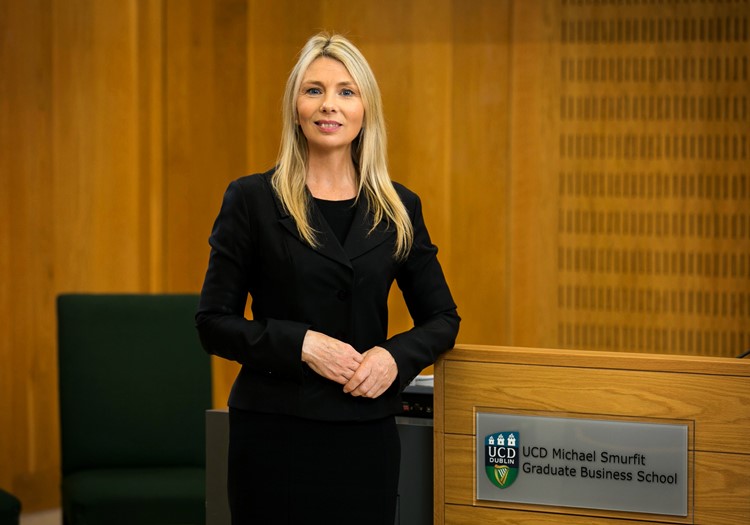World experts converge in Dublin to Build Health Literate Societies
- Date: Thu, Mar 14, 2019
Share this article

UCD Smurfit School Director, Professor Gerardine Doyle, chairs European Health Literacy Conference
The 4th European Health Literacy Conference will be hosted by University College Dublin and Health Literacy Europe on March 14-15, 2019 at the UCD Belfield campus. The focus of the scientific meeting is to advance research, policy and practice regarding people’s capacity to access, understand and apply health information to improve their health and quality of life. The role of health systems in reducing health inequality within societies will also be highlighted.
The conference serves as a platform for the European health literacy community of researchers, decision-makers and practitioners to discuss solutions and ideas for the improvement of individual and societal aspects of health literacy in relation to children and adolescents, digital health, migration and policy development. 220 delegates from 33 countries across the world will join the discussions including representatives from the World Health Organisation and the OECD.
The European Health Literacy Conference is organized by Health Literacy Europe, a network for professionals working on health literacy in Europe, and supported by the National Adult Literacy Agency (NALA), European Health Futures Forum, Centre for Patient Empowerment and Communities, (CEmPaC), Meet in Ireland and Fáilte Ireland and sponsored by Healthy Ireland, Mater Private, and MSD. Full conference details available here.
Professor Gerardine Doyle, Conference Chair and Director of the UCD Michael Smurfit Graduate Business School, said: “We are proud to host this conference in Ireland, joining together global experts from universities, international health organizations, and government departments. Attendees are passionate about empowering a health literate society which can make informed decisions about their health and well-being, ultimately offering a better quality of life. The work we are doing here today enables Irish researchers to influence international policy and will have a global impact.”
Professor Gerardine Doyle is the EHLC Conference Chair following her role as principal investigator for Ireland in the award-winning European Health Literacy Survey and her research on sugar tax and consumer behaviour. The study found that 40% of Irish people have poor health literacy, which impacts health services as people present to emergency departments instead of being treated earlier in a community setting. Findings were submitted to the Department of Health and resulted in health literacy being identified as a priority under two action points in the Healthy Ireland strategy.
Dr Claudia Stein, Director of the Division of Information, Evidence, Research and Innovation, World Health Organization, explained why health literacy is important: “Health literacy – whether in populations or organizations – is not just nice to have. It is a ‘must-have’, and we must invest in enhancing it. We have seen how low levels of health literacy have contributed to decreasing rates of immunization and the tragedy of measles deaths in Europe. Health literacy can literally save lives.”
Kristine Sørensen, the Executive Chair of Health Literacy Europe and President of the International Health Association said: “In a decade, health literacy has been manifested on the European health agenda. In spite of a reality where health systems are under much pressure, we see a keen interest from politicians, researchers, patient advocates and health professionals to meet people where they are and to match their needs in an appropriate and dignified manner.”
Professor Stephan Van den Broucke from Université Catholique de Louvain in Belgium chairs the Scientific Committee of the European Health Literacy Conference. He emphasizes the wealth of high-quality papers that are presented at the conference. “Research on health literacy has grown exponentially over the past decade. In the last few years, more scientific papers concerned with health literacy are published than in the entire period before 2010. This shows the interest of the scientific community to come to grips with a phenomenon that is politically and societally so relevant. And this rich development is also reflected at this European conference”












